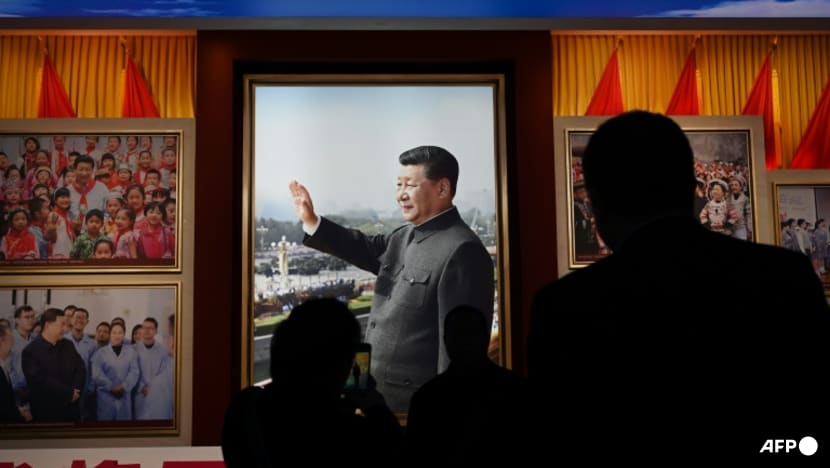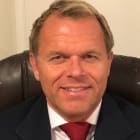Commentary: What China’s two sessions tells us about where Xi Jinping is headed
Everything that was said - and not said - at China's biggest political gathering can indicate the direction the country is taking, says Ted Gover, an expert in US, China and Asian affairs.


This audio is generated by an AI tool.
CLAREMONT, California: China’s annual meetings of political elite and lawmakers in March are highly orchestrated - an opportunity for Beijing to project a strong, confident face, amid the challenges facing its economy and society.
With power increasingly centralised in the hands of President Xi Jinping, everything that is said - and not said - at the two sessions can tell the rest of the world more about the direction he takes China.
This year’s meetings already broke with tradition. The Chinese premier’s annual press conference was cancelled for the first time since 1993 and until end of the parliamentary term ending in 2027, removing a rare opportunity for the media to ask questions and gain insight into his thinking.
This development signalled that the only words that matter are those of Mr Xi.
SECURITY TRUMPS ECONOMY
It’s clear that Mr Xi has been prioritising security and social stability over economic growth, laying out in his closing speech last year that “security is the foundation for development, and stability is the precondition for prosperity”. While Mr Xi did not speak this year, the meeting signalled continuity.
China amended the State Council Organic Law to require the Cabinet to “resolutely uphold” the leadership of the Communist Party of China and “resolutely implement” the decisions of the Party’s Central Committee. This change removes the separation of party and state that Deng Xiaoping implemented in 1982 and effectively shifts authority from the state to the party.
The law also calls for the State Council to promote and defend Mr Xi’s political ideology, known as Xi Jinping Thought, further consolidating his control over China’s government and society.
Economic development is also seen through the lens of national security, after Washington restricted Beijing’s access to advanced semiconductor chips and investment in areas with military applications.
Commitments to science and technology to the tune of 370.8 billion yuan (US$51.6 billion) aim to boost domestic innovation and high-tech self-reliance, include biomanufacturing, quantum computing, electric vehicles and hydrogen energy.
Under the “new productive forces” slogan, China has sought new approaches to economic development founded on science and technological innovation. It is an attempt to shift reliance away from the old drivers of the Chinese economy - the property sector and infrastructure investment.
However, the emphasis on “comprehensive national security” - which involves maintaining authority over technology and science and impinging upon private enterprise - could end up constraining economic growth.
TAIWAN, US-CHINA TIES
The complicated security and economic considerations are at the heart of tensions between the United States and China. At the sidelines of the two sessions, Foreign Minister Wang Yi railed against US sanctions, “unfathomable absurdities” of Washington’s trade controls and burdensome technological restrictions against China.
The boost in defence spending - which mirrors last year’s 7.2 per cent increase and exceeds the economic growth target of 5 per cent - raised concerns about how China might continue its pressure campaign against Taiwan, especially after the January presidential election victory of William Lai Ching-te, the Democratic Progressive Party candidate strongly opposed by Beijing.
Foreign Minister Wang warned that those who “connive at and support ‘Taiwan independence’ will get burned for playing with fire”.
The language in Premier Li Qiang’s maiden work report this year was also scrutinised on whether it indicated a more hardline stance towards Taiwan. The report omitted the word “peaceful” used in last year’s iteration, calling instead to “be firm in advancing the cause of China’s reunification”.
Yet, the omission does not necessarily give promise of an imminent invasion of Taiwan by the People’s Liberation Army. There is precedent for the government work report to not include the word “peaceful” when referencing aspirations to reunify China, and Mr Wang took care to state in his Mar 7 press conference that Beijing insists on “striving for the prospect of peaceful reunification with the greatest sincerity”.
NO ROAD MAP TO RESOLVE CURRENT PROBLEMS
What was not said at the two sessions was as noteworthy as what was said. The meeting was short on specific and bold proposals that would speak to the struggles of Chinese consumers and reinvigorate the struggling economy.
Chinese leaders did their best to project confidence by announcing an ambitious 5 per cent economic growth target. While the country met its 2023 GDP growth target, repeating it in 2024 may be prove a lot more challenging. China faces multiple headwinds, from foreign capital flight, weak consumer demand and worsening deflation to declining birth rates, high youth unemployment and an imploding property sector.
While Mr Li also announced plans to issue US$139 billion in ultra-long central government bonds for major projects and US$542 billion of special bonds dedicated to infrastructure spending, some observers have pointed out the lack of a clear plan for economic reform. There were hopes for larger stimulus packages, assistance for households to cope with the cost of living, removals of manufacturing restrictions and measures to stabilise the property market.
But there was no road map explaining the ways out of China’s current economic difficulties. Consumer sentiment and business confidence are likely to remain subdued, which will likely hinder efforts to revive the economy with domestic demand.
All eyes now will be on the Third Plenum, the meeting of the Community Party’s Central Committee where major economic policies and reforms were historically launched. It has been delayed from the end of 2023 when it typically would have been held, with no date yet fixed.
While it is still too early to know, one possibility for the status quo policy approach this year may reflect some of the limitations of Mr Xi surrounding himself with loyalists who lack expertise.
Time will tell whether Mr Xi’s carefully selected upper echelon is up to the task of addressing China’s serious policy issues.
Ted Gover, PhD, is Associate Clinical Faculty and Director of the Tribal Administration Program at Claremont Graduate University with expertise on US, China and Asian affairs.
















